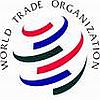
Brussels, 26 November 2007: A new ITUC report on the respect for core labour standards in Thailand was released today. The report shows that there remain serious violations of all core labour standards in the country. The report is being released today to coincide with Thailand’s trade policy review at the WTO on 26 and 28 November.
Thailand has not ratified the ILO core Conventions on trade union rights. Trade union rights are restricted in Thailand both for private sector workers and state enterprise workers. Civil servants do not have the right to organize, collective bargaining and strike and are not covered by the Labour Relations Act. Although anti-union discrimination is prohibited, workers are often subject to harassment. Workers are frequently dismissed when they try to form unions and penalties for unfair dismissal are low. The report provides several cases of trade union discrimination, harassment and intimidation in the last two years, including in companies producing for export.
Migrant workers are not allowed to organize as trade union office bearers need to have Thai nationality, which excludes some 700,000 workers from Burma, Cambodia and Laos from this right. Although they do have the same rights as Thai workers, they are not permitted to change jobs without the permission of their employer which also prevents the freedom of association of these workers. In case of protest they can be deported.
Investors have increasingly set up production in border areas, where many migrants live, as they prefer to hire such workers because they are not allowed to organize unions. They have even sought tax incentives for border investments, under the pretence that there is a shortage of labour in the textiles, garments, footwear and electronics industries.
The report further notes discrimination in employment and wages in Thailand. In the private sector, women generally receive equal wages in low wage jobs, but not in higher wage jobs. In the civil service women are also underrepresented in high wage jobs. There is also a large number of homeworkers in Thailand, mainly women (78.1%) with a large part of their production in textiles and clothing. Earnings for this group are particularly low.
Discrimination also takes place among the hundreds of thousands of Burmese migrant workers who are employed in fisheries, manufacturing, domestic work, construction work, hotels and restaurants and agriculture. Migrant workers in garment factories are forced to work extremely long working hours without overtime payment, and earn less than the already low minimum wage. They work in poor conditions with a lack of ventilation and water in the factories and have to live in poor and crowded accommodation.
Finally the report notes that child labour remains a serious problem in Thailand, including its worst forms such as prostitution, drug trafficking, domestic work, agricultural work and hazardous work. Trafficking of women and children, especially for forced prostitution, continues to be a serious problem and has increased. The report notes that there is concern about the small number of prosecutions and a lack of information on any convictions.
To see the full report click here
Founded on 1 November 2006, the ITUC represents 168 million workers in 153 countries and territories and has 304 national affiliates.
For more information, please contact the ITUC Press Department on +32 2 224 0204 or +32 476 621 018 .


